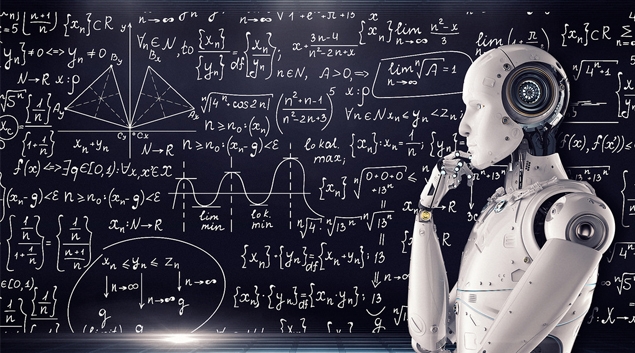Source- healthcarefinancenews.com
Artificial intelligence is coming to healthcare. In fact, in areas such as radiology and cancer detection, it’s already here in places, and is poised to become ever more prevalent in the industry. Which naturally raises a question for nurses and physicians: Is AI coming for my job?
Well, probably not. At least according to experts we interviewed for our Focus on Artificial Intelligence.
That said, both AI and machine learning are in a prime position to alter clinical workflows and physician training. And with the market growing the way it is, implementation is inevitable. A recent Accenture report estimated that the AI health market will hit $6.6 billion by 2021. That’s up from $600 million in 2014.
Artificial intelligence and machine learning algorithms tend to rely on large quantities of data to be effective, and that data needs human hands to collect it and human eyes to analyze it. And since AI in healthcare is currently utilized mainly to aggregate and organize data — looking for trends and patterns and making recommendations — a human component is very much needed.
So physicians and nurses don’t have to worry. Probably. At least for now.
WHAT THE EXPERTS THINK
PeriGen CEO Matthew Sappern puts no stock in the theory that clinicians’ jobs are in jeopardy. Instead, he looks at AI more as an empowerment tool.
“I think it does things that are really imperative that are not necessarily what nurses can do,” he said. “These tools are not so great where reasoning and empathy are required. You teach them to do something, and they will do it over and over and over again, period. They’re good tools to provide perspective, but it’s all about the provider or nurse who’s making sense of that information.”
In many ways, said Sappern, AI can help nurses focus more on the actual job of nursing, and focus more on the abstract things that can truly impact patient care. And it has the potential to increase their confidence, as they can report back to the doctor with hard stats instead of vagaries. Used wisely and it can be a boon to fact-based clinical observation.
Jvion Chief Product Officer Dr. John Showalter was equally dismissive of claims that jobs are in jeopardy. The hype is scary, he said. The reality is not.
“There are great benefits that do amazing things for patients,” said Showalter. “When you come in and improve the scoring for falls, for example, and you understand what needs to be done to prevent falls, that’s ready for prime time today.
“There absolutely places where AI is ready to go today, and then there’s a whole bunch of AI hype that’s really scary, so sorting out the AI that’s ready to help patients and the hype can be really difficult for leadership.
Sappern and Showalter’s opinions mirror the conclusions of an article appearing this year in The Conversation analyzing the potential effect of AI, or lack thereof, on high-skilled jobs.
USING AI AS A TOOL
In the analysis the author notes that innovations in various industrial revolutions have always created new jobs even as they’ve taken old jobs away; what makes the AI revolution different is that it has the potential to affect white-collar jobs.
No need for alarms to go off, though, at least not initially, since AI in healthcare would primarily affect lower-skilled office work, like data processing. Though highly trained professionals could also be affected, the switch so far seems to be happening in a way that shows AI to be a tool more so than a threat, as professionals can now learn how to benefit from its powerful predictive powers.
In some cases, the technology could be used to help fill the physician shortage that is even now gripping many parts of the country, and is expected to get worse.
Eldon Richards, chief technology officer at Recondo Technologies, said AI is now addressing a lot of repetitive tasks that a human might do today.
“If reviewing the ethics of a decision, or complex data or one-off decision, AI is not good at those today,” said Richards. “Ai is very far off when it comes to those capabilities. The mundane, routine things we do, like typing in a word processor, AI us simplifying those things for us, so now we’re shifting our focus from these simple tasks to things that require a little more training. I certainly do not see unemployment going up.”
That sentiment is echoed by Mary Sun, AI researcher at First Derm and medical student at Mount Sinai Medical Center.
“People see it as a job replacement thing and I think that’s a pretty flawed way to look at it,” she said. “In many other industries, like when I was in commercial tech, it’s viewed much more as an augmentation, and piece of mind, and double checking and making sure that you’re involving patterns that one doctor cannot possibly see.
“As one doctor, you can’t possibly see a million patients across your lifetime. But medicine, at least diagnosis, is all in the pattern recognition. So I think it’s going to be very exciting when we find ways to augment our diagnoses and make them a lot more robust.”
Carlo Perez, CEO of Swift Medical, feels similarly, viewing AI as augmentative tool. While it may alter the role of a doctor somewhat, it won’t replace them entirely.
“What we feel is the doctor will transition into someone who understands how to wield data science, who understands how to use these tools,” said Perez. “Hopefully someone will not need to truly understand AI, but will understand their relationship to it. Which is, ‘I can utilize these tools, I understand these tools, and I understand how to utilize them in partnership to make better decisions.'”
